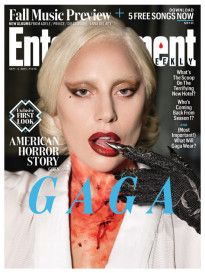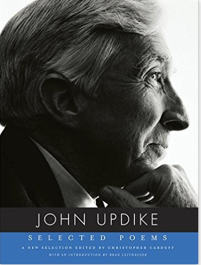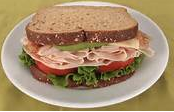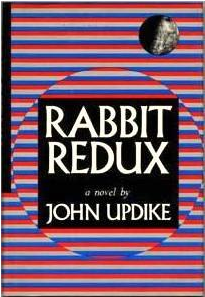 The September 4, 2015 print version of Entertainment Weekly has an interesting feature by Keith Staskiewicz and Isabella Biedenharn on “The United States of Books.”
The September 4, 2015 print version of Entertainment Weekly has an interesting feature by Keith Staskiewicz and Isabella Biedenharn on “The United States of Books.”
“Which novel captures the true spirit of Iowa? How about Texas? Or Rhode Island? Here, EW picks the one work of fiction that best defines each state in the union.”
Is it any surprise that John Updike was chosen as the author whose novel best represents the spirit and character of Pennsylvania?
In choosing Rabbit, Run as the book that captures the spirit of Pennsylvania, the authors write, “Updike’s most famous work, the first of his Rabbit Angstrom novels, follows a former high school basketball star after he abandons his pregnant wife and child, taking suburban Pennsylvania ennui to a terrifying precipice.”
Since there’s no online link yet, here are all the state selections:
Alabama—To Kill a Mockingbird, Harper Lee
Alaska—Julie of the Wolves, Jean Craighead George
Arizona—Animal Dreams, Barbara Kingsolver
Arkansas—True Grit, Charles Portis
California—Play It As It Lays, Joan Didion
Colorado—Plainsong, Kent Haruf
Connecticut—The Witch of Blackbird Pond, Elizabeth George Speare
Delaware—The Book of Unknown Americans, Cristina Henriquez
Florida—The Yearling, Marjorie Kinnan Rawlings
Georgia—Gone with the Wind, Margaret Mitchell
Hawaii—The Descendants, Kaui Hart Hemmings
Idaho—Housekeeping, Marilynne Robinson
Illinois—Maud Martha, Gwendolyn Brooks
Indiana—The Magnificent Ambersons, Booth Tarkington
Iowa—Shoeless Joe, W.P. Kinsella
Kansas—Doc, Mary Doria Russell
Kentucky—In Country, Bobbie Ann Mason
Louisiana—The Awakening, Kate Chopin
Maine—Empire Falls, Richard Russo
Maryland—The Accidental Tourist, Anne Tyler
Massachusetts—The Wapshot Chronicle, John Cheever
Michigan—Once Upon a River, Bonnie Jo Campbell
Minnesota—The Betsy-Tacy Series, Maud Hart Lovelace
Mississippi—The Sound and the Fury, William Faulkner
Missouri—The Adventures of Huckleberry Finn, Mark Twain
Montana—A River Runs through It, Norman Maclean
Nebraska—My Antonia, Willa Cather
Nevada—Fear and Loathing in Las Vegas, Hunter S. Thompson
New Hampshire—A Prayer for Owen Meany, John Irving
New Jersey—Independence Day, Richard Ford
New Mexico—House Made of Dawn, N. Scott Momaday
New York—Drown, Junot Diaz
North Carolina—Jim the Boy, Tony Earley
North Dakota—Love Medicine, Louise Erdrich
Ohio—Winesburg, Ohio, Sherwood Anderson
Oklahoma—The Grapes of Wrath, John Steinbeck
Oregon—Geek Love, Katherine Dunn
Pennsylvania—Rabbit, Run, John Updike
Rhode Island—Spartina, John Casey
South Carolina—The Prince of Tides, Pat Conroy
South Dakota—Black Hills, Dan Simmons
Tennessee—A Death in the Family, James Agee
Texas—Lonesome Dove, Larry McMurtry
Utah—The Monkey Wrench Gang, Edward Abbey
Vermont—Songs in Ordinary Time, Mary McGarry Morris
Virginia—The Known World, Edward P. Jones
Washington—The Absolutely True Diary of a Part-Time Indian, Sherman Alexie
West Virginia—Lord of Misrule, Jaimy Gordon
Wisconsin—A Map of the World, Jane Hamilton
Wyoming—Close Range, Annie Proulx
 John Updike’s Selected Poems made the list of “10 Books We Loved in 2015” by PBS NewsHour.
John Updike’s Selected Poems made the list of “10 Books We Loved in 2015” by PBS NewsHour.


